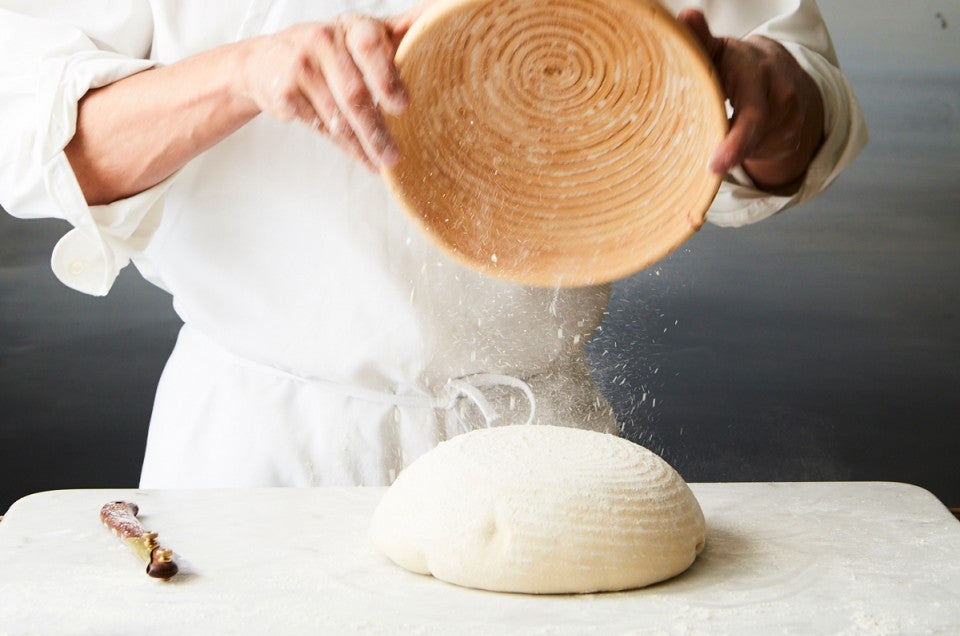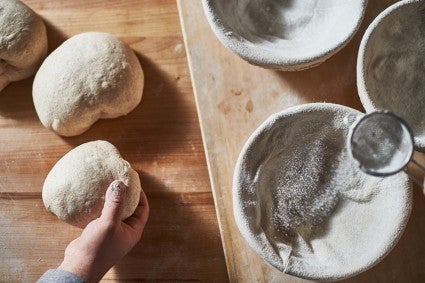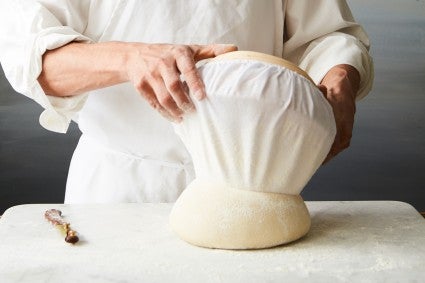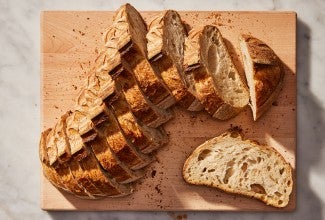I'm sorry, but you really do need a brotform
For less stress and better bread, grab this tool.


I have a tiny kitchen. There’s hardly room for essentials like a stand mixer, baking pans, and even flour and sugar — seriously, my closet is my pantry. Which means I get by baking with the bare minimum. Sadly, there’s no electric griddle for me, or espresso machine, or proofing box. (Good thing I have a dryer …)
So trust me when I say that for the longest time, I never even considered getting a brotform for my bread baking. These round- or oval-shaped vessels, sometimes also called proofing baskets or bannetons, are designed to hold shaped bread dough as it undergoes its final rise, providing structure and support. “But I’ve got a round bowl and a flour-dusted towel,” I scoffed to myself. “And my breads still turn out fine.”
And they were just that — fine. But were they great? No. And what’s worse, making bread without a brotform was inconsistent and stressful. Potential problems were numerous: Sometimes the tea towel I needed to line my bowl was dirty, or the bowl (I only have one that is even remotely the right size to act as a brotform stand-in) was already in use. Sometimes I dusted the towel with too much flour, leading to caked-on bits on the outside of my bread. Or I had the opposite problem: I used too little flour, and the towel stuck to the dough, causing it to tear and deflate.

And of course, the whole process itself was a little wonky. The towel would crease in places, causing divots in the bread shape. And turning the dough from the bowl into the baking vessel was a moment of panic: Would the dough stick? Would it tear? Would I have to slowly, carefully peel back the towel, praying to some higher power that it would all go smoothly?
I know I sound needlessly dramatic. But the thing is, I didn’t realize it was that bad because I didn’t know another way. Until one particularly squat and misshapen loaf convinced me to finally get a brotform, and I learned that a process that used to feel so difficult could actually be a breeze. I just needed the right equipment.
Here’s the thing about a brotform: It makes your baking easier, and your bread better. First and foremost, a brotform offers a consistent shape and size for your bread dough. You don’t have to think twice about if your vessel is too small, too big, too wide, or too narrow. It provides just the right amount of support for your dough as it proofs so that it rises upwards, instead of outwards, ensuring it has the height it needs for a tall, well-shaped loaf. And unlike a towel-lined bowl, it’s not messy. Just dust a very light layer of flour in the brotform, and it’s ready for your dough.

Perhaps the biggest difference, though, is how it doesn’t allow the dough to stick. Before switching over to a brotform and liner, I thought that using one would make my dough a little less likely to stick. I was wrong. It doesn’t stick at all. All I have to do is turn over the basket, and my dough gently but quickly releases. And crucially, it doesn’t tear or rip in any places, which means my loaves look amazing and get as much oven spring as possible. It even improves scoring: During the final rise (especially if the dough is cold fermented in the fridge), the banneton effectively wicks away moisture from the surface of the loaf. This makes for much easier scoring and helps support a loaf with that signature sturdy crust. So far, my breads are far better, and my life is a whole lot easier.
As a minimalist in the kitchen, it pains me to admit that you need a brotform. But it really has made a difference in my bread-making practice, and quickly earned the (small) amount of space it takes up in my kitchen. After all, bread baking doesn't require a lot of tools, so it makes sense to invest in the few that actually transform your baking, including a brotform. If you don’t have one yet and you bake a lot of bread, it’s probably worth a spot in yours, too.
Learn more about baking with a brotform and other types of proofing baskets: A guide to bannetons, brotforms, and proofing baskets.
One of the best breads to make with a brotform is Pain de Campagne. Watch how it’s done:
Cover photo from Sift Magazine.


